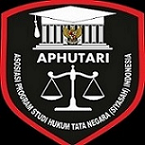Sanksi Adat Dalam Tindak Pidana Perjudian Di Desa Gunung Hasahatan (Perspektif Hukum Pidana Islam)
Abstract
Gambling is to risk a certain amount of money or treasure in a guessing game based on chance, with the aim of obtaining an amount of money or treasure that is greater than the original amount of money or treasure. Gambling is regulated in Article 303 of the Criminal Code and the basis for the prohibition of gambling in Islamic Law is contained in the Qur'an surah al-Ma'idah verse 90. The formulation of the problem from this study is how customary sanctions in gambling crimes in Gunung Hasahatan Village, how to review Islamic Criminal Law against customary sanctions in gambling crimes in Gunung Hasahatan Village. The purpose of this study is to find out how customary sanctions in gambling crimes in Gunung Hasahatan village, to find out the review of Islamic criminal law against customary sanctions in gambling crimes in Gunung Hasahatan Village. The theories used in this study are theories related to gambling, gambling articles in the Criminal Code and gambling in Islamic Law. Furthermore, the type of research used is field research. The results of the research obtained that, customary sanctions in gambling crimes in Gunung Hasahatan Village, Padangsidimpuan Batunadua District, Padangsidimpuan City, were given included in the category of ta'zir law. As for the punishment has been determined by the Gunung Hasahatan Village Apparatus through the way of deliberation, the punishment of ta'zir is given because it is in accordance with the principles of ta'zir punishment in the Islamic Criminal Law. The punishment of ta'zir is a punishment that is left to the leader. Both its determination and its implementation. The punishment in Gunung Hasahatan Village has the same purpose or ideal as the ta'zir punishment, which is to make the perpetrator of the crime deterrent and will not repeat his actions again and become a lesson for others as a prevention in the occurrence of criminal acts and the realization of security, peace and tranquility.
Keywords
Full Text:
PDFReferences
Referensi
a. Sumber Buku
Departemen Agama RI, Mushaf Al-Qur’an dan Terjemahnya, Bandung: Diponegoro, 2016.
Poerwadarminta, Kamus Besar Bahasa Indonesia, Edisi Kedua, Jakarta:Balai Pustaka, 1995.
Lamintang, Dasar-dasar Hukum Pidana Indonesia, Bandung: CV. Sinar Baru, 1984.
Maramis Frans, Hukum Pidana Umum Dan Tertulis Di Indonesia, Jakarta:PT RajaGrafindo Persada, 2013.
Ali Mahrus, Dasar-Dasar Hukum Pidana, Jakarta, Sinar Grafika, 2012.
Tien S., Modul Hukum Pidana : Materi Kuliah S1 Hukum Pidana Fakultas Hukum Universitas Pasundan, Bandung, 2017.
Djazuli A., Djazuli. Kaidah-kaidah Fikih, kaidah-kaidah Hukum Islam dalam Menyelesaikan masalah-masalah yang praktis, Jakarta: Prenada Media Group, 2006.
Muslich Wardi Ahmad, Hukum Pidana Islam, Jakarta: Sinar Grafika, 2005.
b. Sumber Jurnal
Sirait, Adi Syahputra, “Fektivitas Razia Kenderaan Dalam Membentuk Kesadaran Hukum Masyarakat,” Konsep Hak Milik Dalam Islam (2020): Hlm, 1.
Harahap, Zul Anwar Ajim, “Azas Legalitas Dalam Hukum Pidana Islam,” al-Maqasid Jurnal Ilmu Kesyariahan dan Keperdataan-Maqasid: Jurnal Ilmu Kesyariahan dan Keperdataan, 2, no. 1 2016.
Lubis, Ihsan Helmi, “Putusan Mahkamah Agung NomoR. 37/P/HUM/2017 (Ditinjau Dari Asas Keadilan)” 7, no. 1 2019.
Simanjuntak, Dahliati, “Cadar Dalam Perspektif Hukum Islam Dan Hukum Positif” 8 2022.
Mustafid, “Hukum Perbuatan Roasting Dalam Stand Up Comedy Ditinjau Berdasarkan Ketentuan Syari’at Islam” 7, No. 2 2021.
Harahap, Ikhwanuddin, “Memahami Urgensi Perbedaan MAzhab Dalam Konstruksi Hukum Islam Di Era Millenial,” al-Maqasid Jurnal Ilmu Kesyariahan dan Keperdataan 5, no. 1 2019.
Ahmatnijar, “Pragmatisme Hukum Islam,” Jurnal el-Qonuniy: Jurnal Ilmu-ilmu Kesyari’ahan dan Pranata Sosial 1, no. 1 2015.
Dalimunthe,Dermina, “Perkembangan Perlindungan Hukum Terhadap Perempuan/Istri Hingga Lahirnya Uu No. 23 Tahun 2004 Tentang Penghapusan Kekerasan Dalam Rumah Tangga,” No. 23 2004.
DOI: https://doi.org/10.24952/el-thawalib.v3i5.6204
Refbacks
- There are currently no refbacks.









Editorial Office Board :
Kampus UIN Syekh Ali Hasan Ahmad Addary Padangsidimpuan
Jl. T Rizal Nurdin No.Km 4, RW.5, Sihitang, Padangsidimpuan Tenggara, Kota Padang Sidempuan, Sumatera Utara 22733
 Jurnal El-Thawalib is licensed under a Creative Commons Attribution-ShareAlike 4.0 International License.
Jurnal El-Thawalib is licensed under a Creative Commons Attribution-ShareAlike 4.0 International License.
View My Stats






